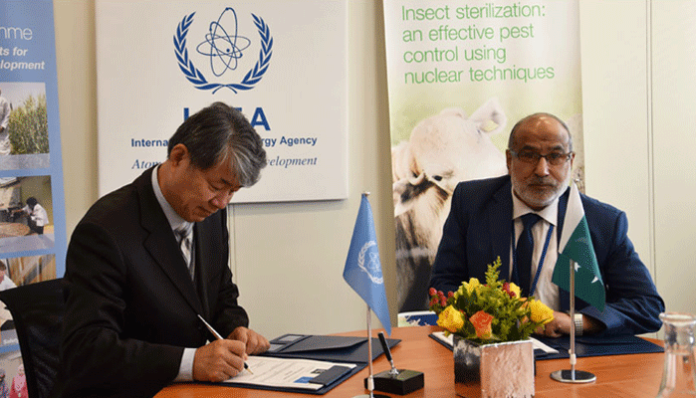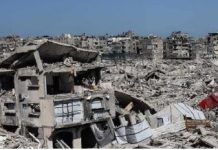ISLAMABAD, SEP 18 (DNA): A new six-year Country Programme Framework (CPF) has been signed between Pakistan and the International Atomic Energy Agency (IAEA) aimed at strengthening cooperation in peaceful nuclear applications ranging from food security to energy and healthcare.
Pakistan Atomic Energy Commission (PAEC) Chairman Dr Raja Ali Raza Anwar and IAEA Deputy Director General and Head of the Department of Technical Cooperation Hua Liu signed the fifth CPF, covering 2026–2031 on the sidelines of the IAEA General Conference in Vienna, Austria.
The framework identifies five priority areas including food and agriculture; human health and nutrition; climate change and water resource management; nuclear power; and radiation and nuclear safety.
It aligns with Pakistan’s development goals and the UN Sustainable Development Goals (SDGs), while covering three IAEA technical cooperation cycles.
Agriculture, which makes up nearly a quarter of Pakistan’s GDP, will see expanded use of nuclear techniques to boost crop yields, enhance pest control, and improve livestock health. In health, the CPF focuses on expanding nuclear medicine and radiation oncology services across the country’s 20 Atomic Energy Cancer Hospitals, which already treat more than a million patients annually.
With Pakistan among the most climate-vulnerable nations, nuclear techniques such as isotope hydrology will help manage water resources and adapt to changing weather patterns. In the energy sector, where nuclear contributes over 18 per cent of annual power generation, the CPF emphasises safe plant operations, waste management, and life-cycle planning.
“The signing of this Country Programme Framework reaffirms Pakistan’s unwavering commitment to the peaceful applications of nuclear science and technology,” Dr Anwar said.
“With the support of the IAEA, Pakistan will continue to harness these tools to address food security, improve healthcare, strengthen energy security, and safeguard our environment.”
Liu called the agreement a “shared vision for sustainable development through peaceful nuclear cooperation.”

















